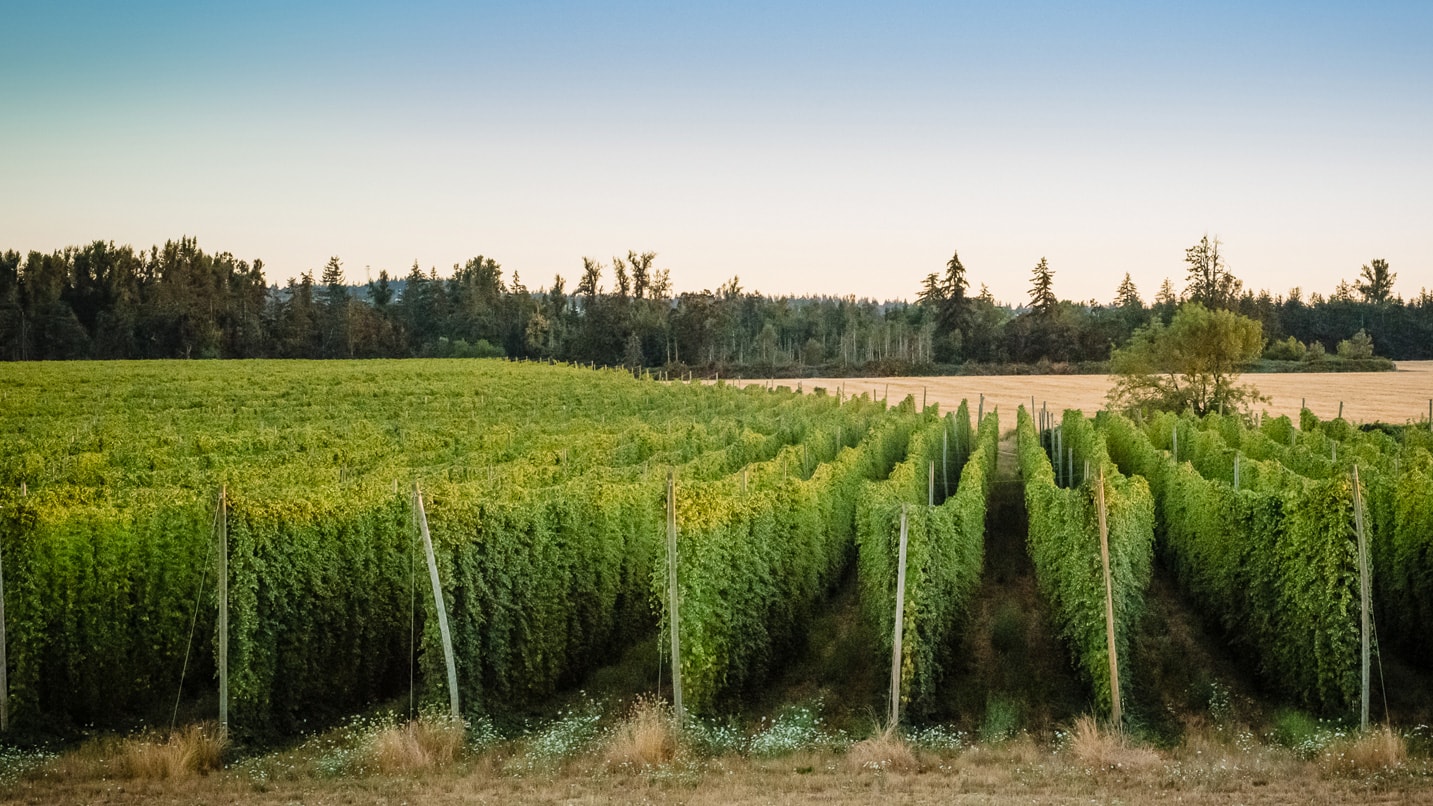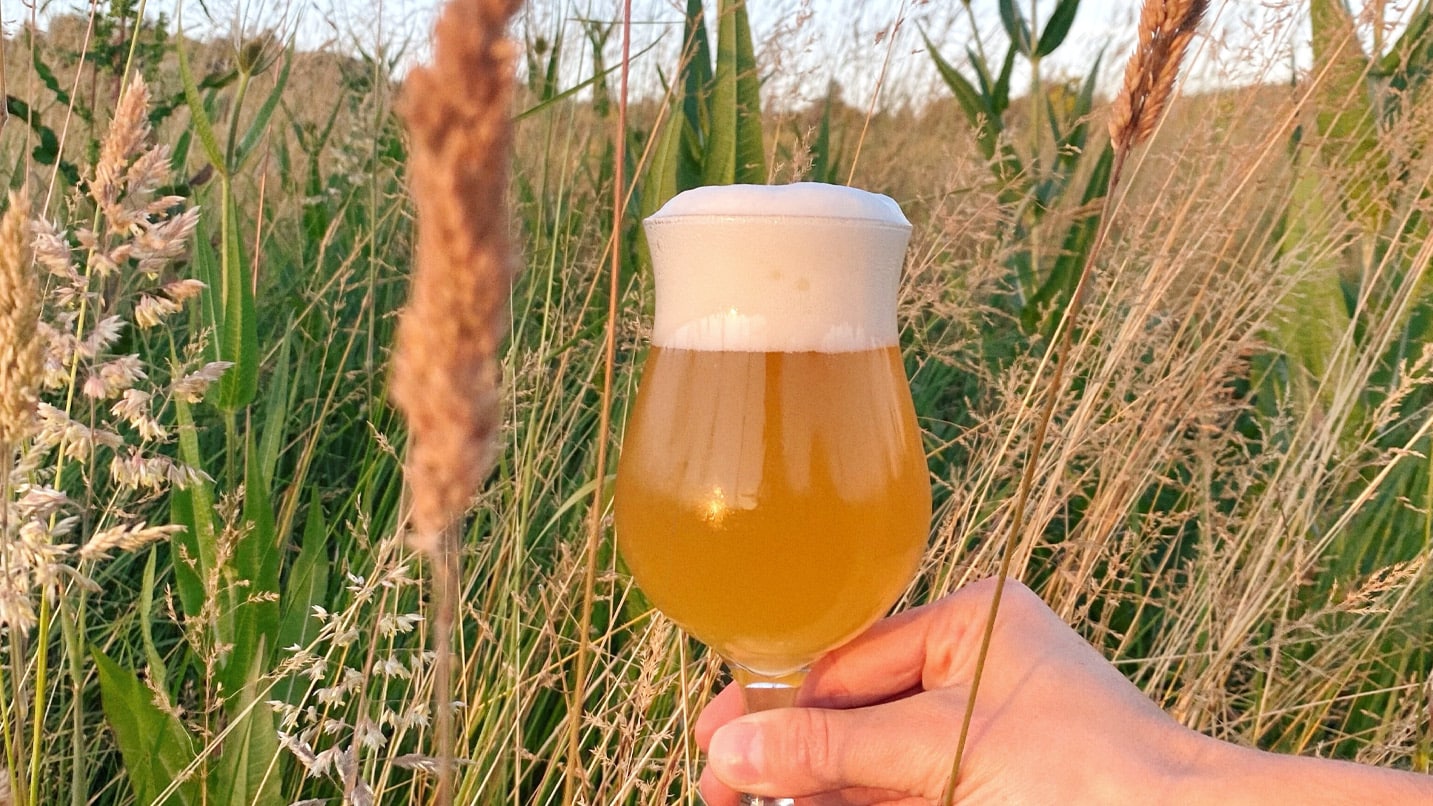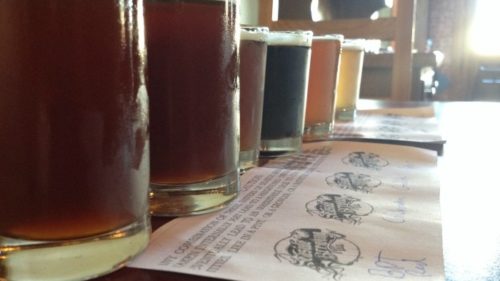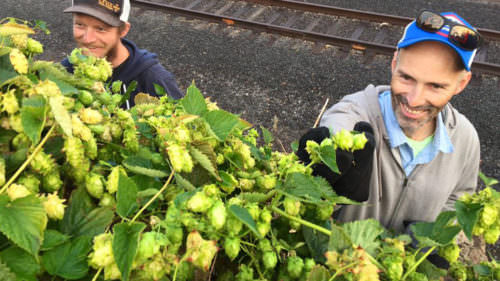Great beer starts with great ingredients.
In Oregon that means citrusy hops grown in sustainable ways that keep rivers healthy and salmon swimming free. You can create depth with rich barley coaxed from volcanic soils in Central Oregon fields. To add some nose, consider some Columbia River fruit plucked from a newly revitalized heritage orchard.
Thirsty yet? In October brewers from around the state are pulling out all the stops to create a wide array of “Cheers to the Land” beers, all in a limited release during that festive month. Each will highlight just how important a thriving agricultural industry is, not just for awesome beer but also for preserving the landscapes and farms that make Oregon such a tasty place to visit.
Proceeds from sales go to the Oregon Agricultural Trust, a nonprofit that helps farmers and ranchers protect their land and pass it on to the next generation. “We are so lucky,” says Bryan Keilty, a brewer at Gorges Beer Co., which has locations in Portland and Cascade Locks. “There aren’t too many places in the world that can grow what we grow here.”

More Variety Than Any Other State
That’s not hyperbole. Oregon farmers grow a whopping 220 types of crops, more than any other state, says Nellie McAdams, executive director of the Oregon Agricultural Trust. A full quarter of the state’s 63 million acres are agricultural lands, about 16 million acres in all, but 10 million of those agricultural acres — well more than half — will change hands in the next 20 years. That’s because the average age of the Oregon farmer is 60, and 81% of them have no plans to pass their operations on.
“Those lands are at risk,” McAdams explains. “Once they’re paved they’re lost forever.”
McAdams says Oregon has some exceptional operations growing ingredients in innovative ways, too. Goschie Farms, a fourth-generation farm near Silverton, recently became the first Salmon-Safe-certified hop farm in the United States, meaning potentially harmful byproducts don’t end up in rivers. The barley Goschie grows gets turned into malt in ways that conserve water, too.
“We’re interacting not only with the farmers themselves but with the processors and with the people who are making this, bringing the food to people’s tables or into their beer mugs,” she says.

Beers for the Land
Nine breweries from around the state have joined the effort, the first beer-focused drive for the trust. The breweries plan to hold events that highlight the trust’s work, the various beers and a meal that goes with it. (Check the event site for specific dates at each brewery.) Elsewhere, many of the beers will make it into stores as cans. For others you’ll have to visit the brewery itself.
Here’s what you don’t want to miss.
Barley Brown’s Beer in Baker City will feature an IPA with malt made locally from Gold Rush Malt. Ted O’Hanlan, lead brewer at Block 15 Brewing Company in Corvallis, says he’ll be making a West Coast IPA using Gold Rush Malt, too, along with Comet and Zappa hops, two drought-resistant varieties grown by Crosby Hops in Woodburn.
“The beer should be delicious,” O’Hanlan says, “but it’s also a bit of a conversation starter about local agriculture.”
At Falling Sky Brewing in Eugene, try the Cascadian Dark Ale with spruce tips harvested in Oregon and salmon-safe crops — malt from Goschie Farms and hops from Crosby Hops. Meanwhile, Ferment Brewing Co. in Hood River is making a hoppy pale ale with malt from Madras’ Mecca Grade Estate Malt, oats and plenty of the conical, aromatic flowers. Swing by the brewery overlooking the waterfront or grab it in a limited number of cans.
“Beer is wonderful; we absolutely love it,” says Ferment co-owner Jenn Peterson. “But we also love being part of a community that’s creating a better future.”
ForeLand Beer in McMinnville will brew a dry-hopped Pacific Northwest lager with Salmon-Safe products — Lorien and Sterling hops and malt from Mainstem Malt. Meanwhile, Fort George Brewery in Astoria is making a double India pale ale with salmon-safe hops and grains as one of 56 new beers it is releasing this year. Sample it with pizza and pub fare at the brewery, housed in an old automotive complex.
Brewmaster Bryan Keilty at Gorges Beer Co. in Cascade Locks spent a day prepping 120 pounds of apricots he scored from The Dalles Orchard House and its 2-acre farm that dates back to the Homestead Act of 1862. He’ll age it for two months to make it perfect.
Christian DeBenedetti, the mastermind behind Wolves & People Farmhouse Brewery — a local favorite in Newberg — specializes in Old World, wild-yeast beers. This Cheers to the Land brew won’t disappoint. “It’s an oak-barrel-aged, Robada apricot and rye pale ale, tart but not sour, very tasty!” he says. Pelican Brewing Company in Cannon Beach will soon unveil a new draft beer too.
“Each of these is going to help spread the word about the importance of protecting the land,” McAdams says. “Oregon is very unusual compared to other states. The Willamette Valley would probably look [very different] without the thoughtful planning we have.”



